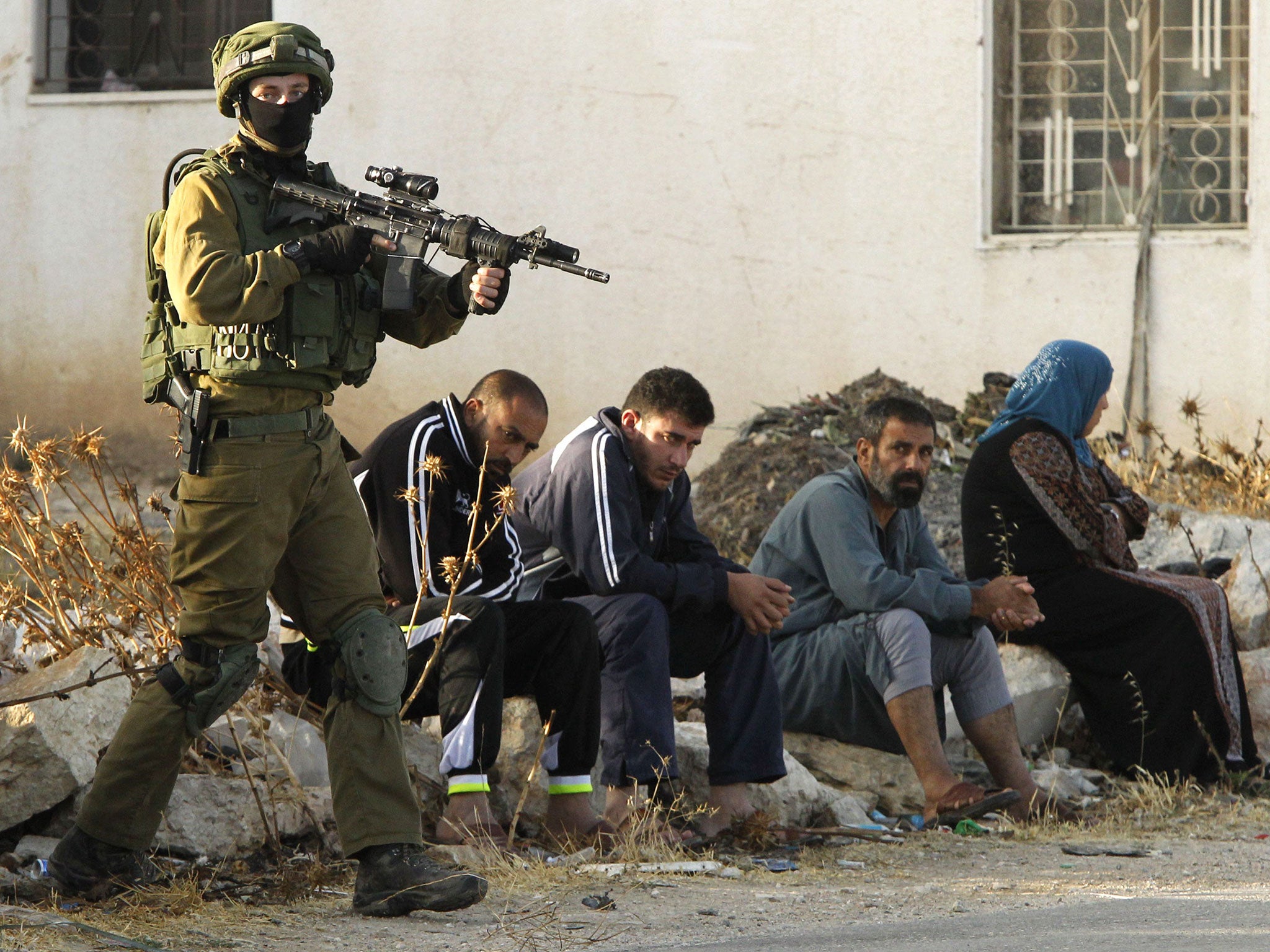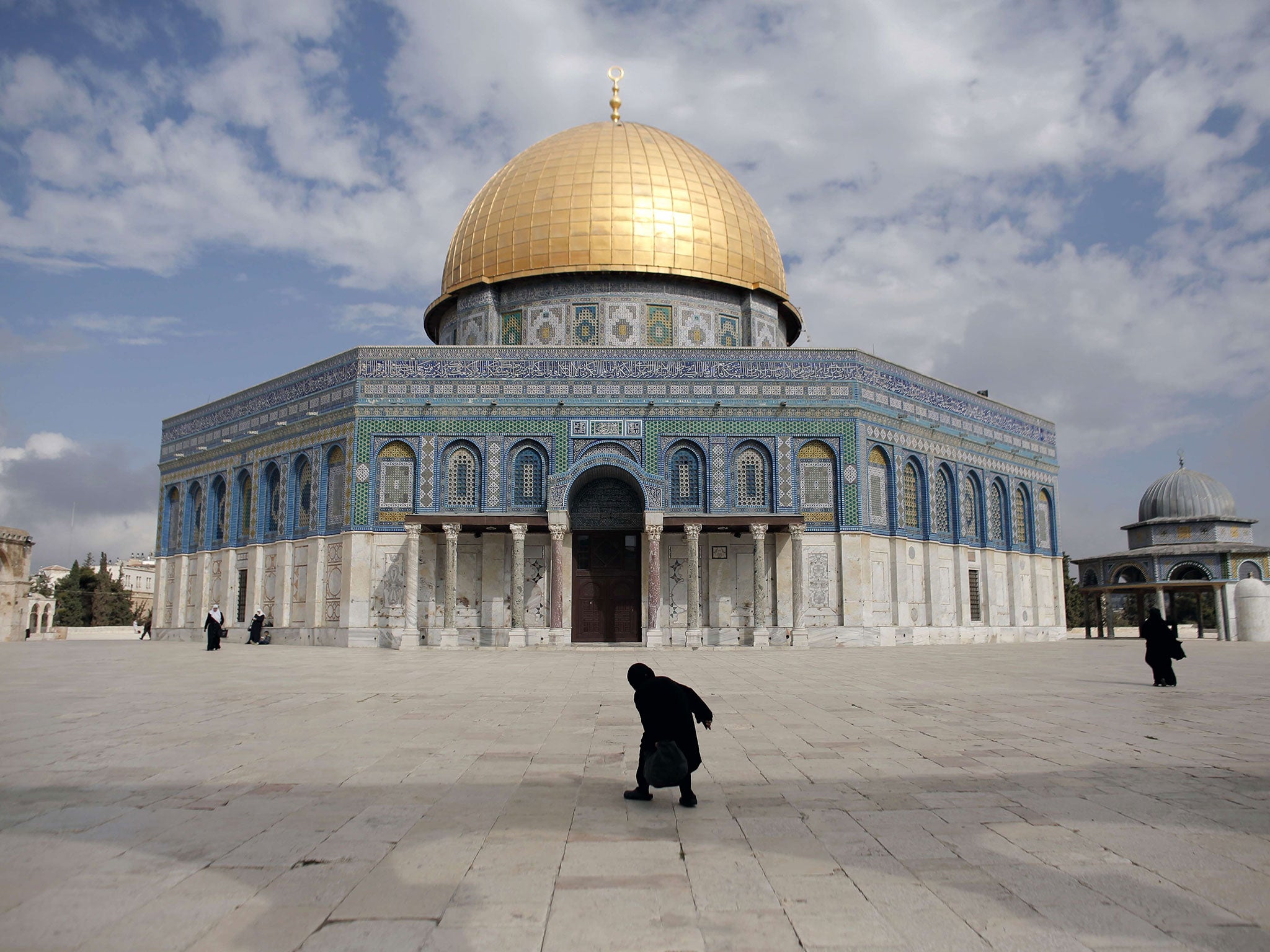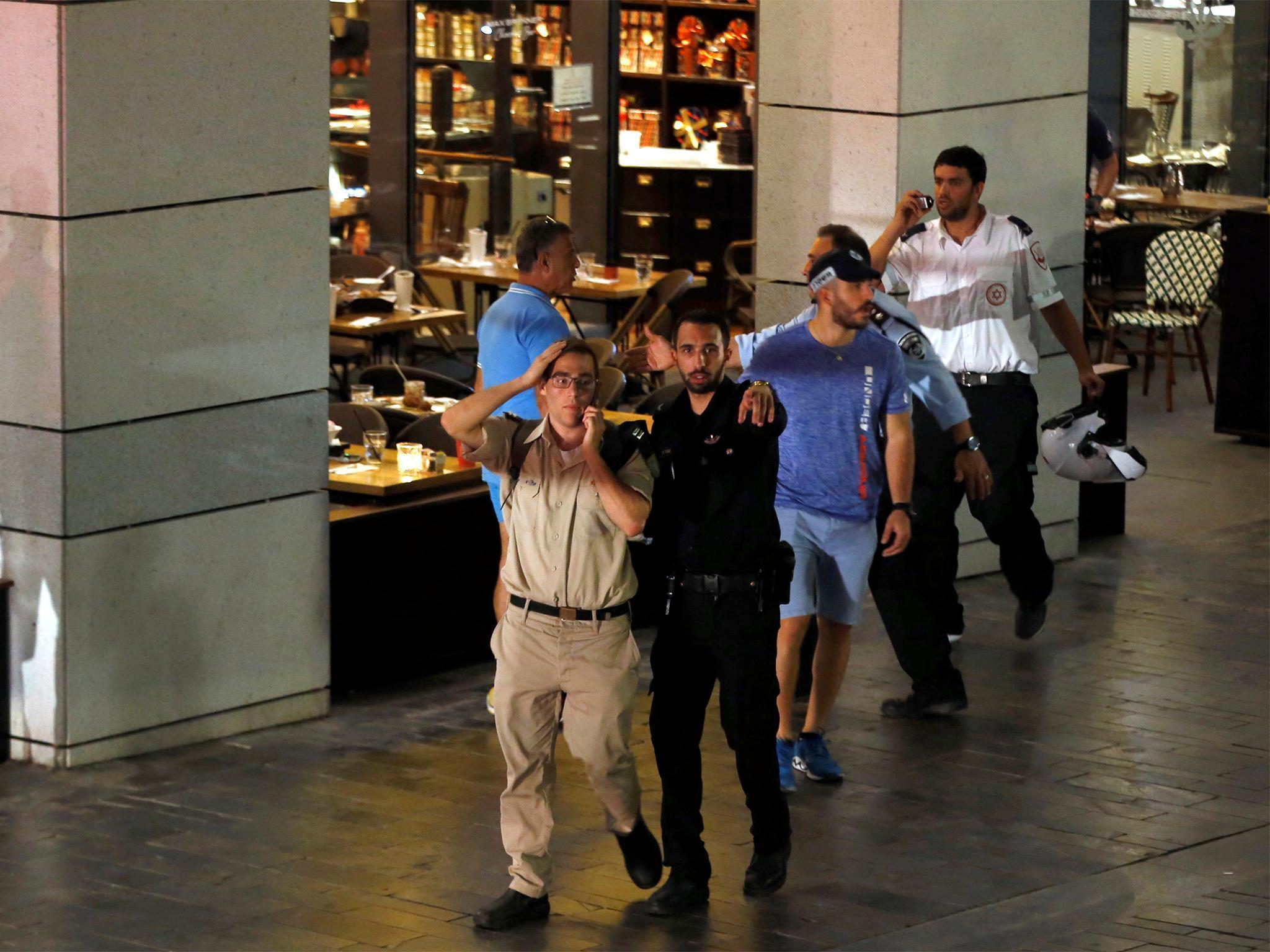Tel Aviv attack: Authorities ban 83,000 Palestinians from travelling into Israel from West Bank and Gaza for Ramadan
Travel permits have been suspended to prevent Palestinians from travelling into Israel - effectively stopping them from using Tel Aviv airport

The Israeli military has revoked permits for more than 80,000 Palestinians to visit Israel during the Muslim holy month of Ramadan after a terror attack in Tel Aviv.
Two gunmen opened fire in the Sarona Market food and retail centre on Wednesday evening, killing four Israelis and wounded more than a dozen others, in one of the deadliest attacks in an eight-month wave of violence.
Both attackers are in custody, with one in hospital, and police say they have identified the suspects as cousins and blockaded their home village of Yatta, in the West Bank.

An unknown number of people were arrested in overnight raids by the Israel Defence Forces (IDF) and authorities were reportedly preparing to demolish one of the gunmen’s homes.
The Coordinator of Government Activities in the Territories (Cogat), an Israeli military body, said Palestinian residents were banned from entering or leaving Yatta and access would only be permitted for humanitarian and medical cases.
“All permits for Ramadan, especially permits for family visits from Judea and Samaria (the West Bank) to Israel, are frozen,” said a statement.
It said that 83,000 Palestinians would be affected, including 204 relatives of the alleged attackers, and hundreds of people from the Gaza Strip who had received permits to visit relatives and holy sites during Ramadan.
It will prevent thousands of Muslims travelling to the al-Aqsa Mosque, the third holiest site in Islam that has become a flashpoint for protests, during the month of fasting and prayer.
Holders of Palestinian ID cards are banned from using Israel’s only international airport – Ben Gurion in Tel Aviv, forcing them to leave the country via Jordan or Egypt instead.

Critics of the policy said it amounted to “collective punishment” of Palestinians and could fuel unrest.
Sara Apps, interim director of the Palestine Solidarity Campaign, said: “Every life lost is one life too many…but imposing an unlawful collective punishment on Palestinians in the West Bank in response to yesterday’s shooting in Tel Aviv is not the way to move towards understanding and peace.”
A spokesperson for the Israeli Embassy in London told the Independent the permits were suspended in accordance with a security assessment taken by the Prime Minister, the Minister of Defence and the IDF Chief of Staff.
He said the 83,000 figure included all permits introduced for Ramadan, particularly those for Palestinians visiting relatives in Israel, and those for Gazans to worship at al-Aqsa.
After a previous attack in Tel Aviv in November last year, Cogat reviewed permits for 1,200 people living in the West Bank’s Hebron region, while several Palestinian villages have been temporarily blockaded.
There are 101 different permits governing the movement of Palestinians, Haaretz reports, with the most common allowing them to work in Israel and others allowing travel for clerics, medical staff, farming and even funerals.

Travel restrictions and increased security checks are routinely brought in after attacks in Israel and the West Bank, which have seen 32 Israelis and two Americans killed in stabbings, shootings, bombings and car rammings over the last eight months.
About 200 Palestinians have been killed during that time by the Israeli security forces, who said the majority were attempting or carrying out attacks, although others were shot during protests and clashes.
The United Nations High Commissioner for Human Rights has raised concern over the “disproportionate use of force or possible extra-judicial executions”, calling for full investigations into every death.
There have been calls for a strong response to Wednesday’s terror attack in Israel, including from some members of Benjamin Netanyahu’s cabinet.
Yisrael Katz, the transport minister, called for an “operation to root out terror” in Yatta, the Jerusalem Post reported.
“The village needs to be reminded of its history, which already has experience with terrorism,” he said.
“If the terrorists knew that their families would be expelled (to Gaza or Syria) because of their actions, they would think twice before acting.”
Mr Netanyahu, the Israeli Prime Minister, met his defence minister and security leaders shortly after the attack and travelled to the scene.
“We discussed a range of offensive and defensive steps which we shall take in order to act against this phenomenon,” he said in a statement.
“There will be intensive action by the police, the army and other security services, not just to catch every accomplice to this murder but also to prevent further incidents.”
Witnesses described their terror at Sarona market, where CCTV showed people running and throwing themselves to the ground after two men wearing suits opened fire, with one brandishing a knife.
The complex is across the street from Israel's military headquarters and is often filled with tourists and young soldiers in uniform.
Hamas, the Islamist militant group that controls Gaza, welcomed the attack but did not claim responsibility for it.
Mushir al-Masri called the shootings a “heroic operation” and the group later issued an official statement promising the “Zionists” more “surprises” during the Muslim holy month of Ramadan.

The US State Department and presidential candidates condemned the atrocity, while David Cameron said he was sickened by the “appalling attack”.
“We stand with Israel against terrorism and my thoughts are with the victims and families,” the Prime Minister added.
The UN Secretary-General, Ban Ki-Moon, conveyed his condolences to the families of the victims and the government of Israel, reiterating that there is “no justification for terrorism nor for the glorification of those who commit such heinous acts”.
“The Secretary-General added he is shocked that the leaders of Hamas have chosen to welcome this attack and some have chosen to celebrate it,” his office said, calling on the Palestinian leadership to “live up to their responsibility to stand firmly against violence and the incitement that fuels it”.
Fireworks were set off in parts of the West Bank on Wednesday evening and people were seen singing and waving flags in some refugee camps, in what locals told Reuters was a celebration of the Tel Aviv attack.
Most of the attacks carried out so far have been in East Jerusalem or the West Bank, territories Israel seized from Jordan in the 1967 war that Palestinians want for their future state.
Tel Aviv, Israel's most cosmopolitan city, was previously targeted with a shooting rampage that left three dead on New Year's Day, and in March a Palestinian went on stabbing spree, killing an American and wounding seven other people before he was shot dead.
Join our commenting forum
Join thought-provoking conversations, follow other Independent readers and see their replies
Comments